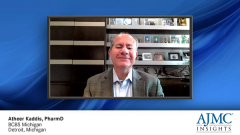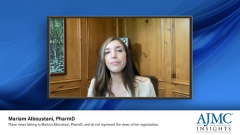
Improving Patient Access to Biosimilars
In her final thoughts, Dr Oskouei discusses how patient care may be improved by increased access to biosimilars.
Episodes in this series

Sonia T. Oskouei, PharmD, BCMAS, DPLA: Another influencer of biosimilar success in the United States is how the biosimilar company commercializes its product. There’s an expectation in the market that the types of patient-support programs and hub services offered by a biosimilar company should at least match what the patient experience is and for those offerings provided by the originator biologic. This is to ensure timely access to treatment, whether it’s new starts or transitions. Through these types of hub programs or offerings, there are critical components, such as patient out-of-pocket costs and co-pay programs but also programs that could support the transitions, adherence, and compliance, meaning experience on a biosimilar product. Especially in the immunology space, this is very important.
Being chronic conditions, there’s going to be a bigger opportunity for switching or transitioning patients from originator biologics to biosimilars, which may benefit from potentially lower-cost, high-quality alternatives. That experience is so important. Studies have shown that patients sometimes have transitioned to a biosimilar and experienced what’s called a nocebo effect, which is when the patient feels that the product isn’t working as well or is failing despite any changes in clinical biomarkers. It’s a very real effect that can occur. Studies have shown that patient engagement, adherence, compliance, education, and bridging the engagement as they start and continue on therapy are critical interventions to minimize the risk of this nocebo effect. Offering patients the support offerings or programs, whether it’s directly from a biosimilar company or through strategic partners in the market, is very important to the success of these products.
Transcript edited for clarity.
Newsletter
Stay ahead of policy, cost, and value—subscribe to AJMC for expert insights at the intersection of clinical care and health economics.













